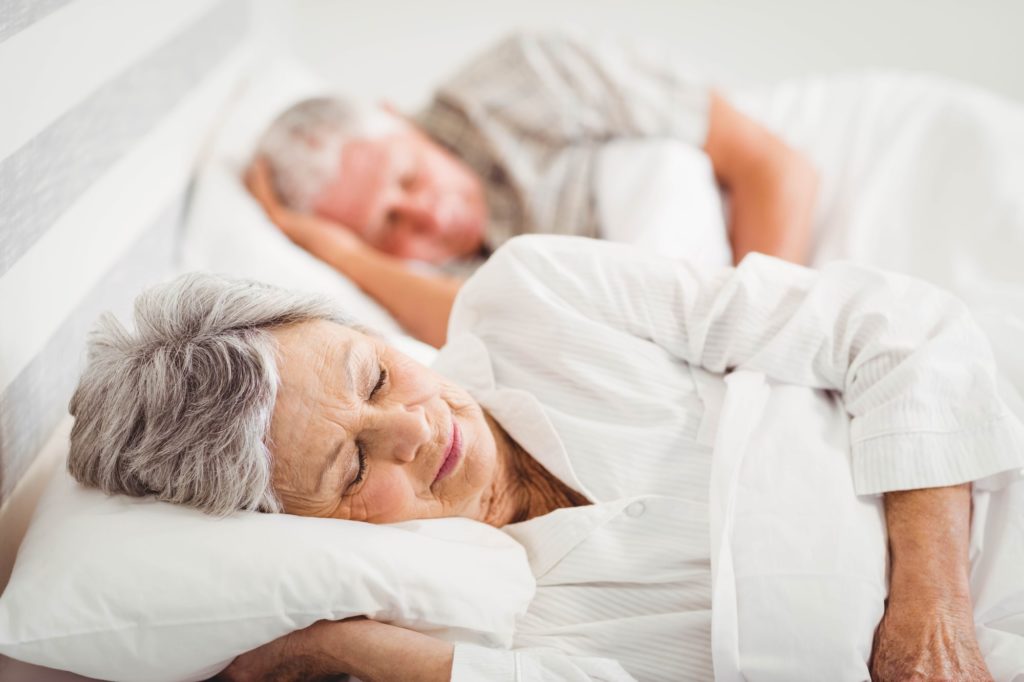Common sleep problems in the elderly
Sleep problems in the elderly are quite common with research showing that more than half of adults aged 65 years or over have at least one sleep complaint.
 Common sleep problems in the elderly
Common sleep problems in the elderly
Insomnia
With more than 50% of elderly people experiencing it, insomnia is the most common sleep disorder. When you find it hard to get to sleep or stay asleep, you’re said to have insomnia. If you wake in the night, you may not be able to get back to sleep for a long time. Older people with poor health, have a higher risk of developing insomnia, compared to the general population.
Sleep apnoea
Also known as obstructive sleep apnoea, this occurs when your throat is partly or completely blocked while you’re asleep. This causes you to stop breathing for short periods of time (anywhere from 10 seconds to a minute). The brain registers a drop in oxygen rate, and sends a small wake-up call. Most people aren’t aware this is happening, but will wake up tired. Sleep apnoea can affect anyone, but is more common in the older population.
Restless limb syndrome (RLS)
This disorder is characterised by unpleasant feelings in the legs and the irresistible urge to move them. More than 80% of people with RLS also have a condition known as periodic limb movement disorder. This causes twitching or jerking movements during sleep. Both conditions make sleep difficult. While anyone can be affected, it is more common in older age.
What else causes sleep problems in the elderly
A number of factors can cause disrupted sleep in elderly people.
Acute and chronic medical illness
Age is a risk factor for many illnesses and health conditions, some of which can interfere with sleep. Pain from arthritis, respiratory conditions such as asthma or chronic obstructive pulmonary disease, dementia and incontinence may all cause interrupted sleep patterns in elderly people. In addition, feelings of anxiety and depression can make it difficult to get to sleep, and cause wakefulness during the night.
Medications
Some medications can also interfere with natural sleep cycles, including antidepressants, antihistamines, blood pressure medications, asthma and allergy medications, and medications for heart problems.
Lifestyle and mental state
As people age, it’s not uncommon for them to be less active during the day. A lack of exercise can make sleeping difficult, as can napping during the day. Around 40% of older people have at least one 30-minute nap each day. Most people over 80 years old nap for more than an hour each day.
Older people are also at higher risk of hospitalisation, or anxiety or depression due to loneliness or the death of a partner. This can also make sleep difficult.
How an older person can improve their sleep
You can improve your sleep by:
- Going to bed at the same time every night and getting up at the same time each day
- Getting regular exercise or movement
- Avoiding napping during the day
- Exposure to sunlight in the morning and late afternoon can help set your body clock.
Ensuring you have a comfortable mattress that supports you and meets all of your needs is also imperative in getting a good night’s sleep.
BedGuard’s Opulence Range of mattresses has been developed with seniors in mind, featuring premium construction, ultimate comfort and sanitary protection. Browse our range today.





